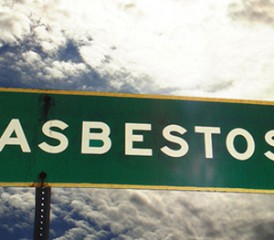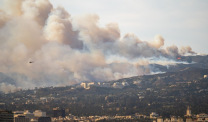Asbestos Exposure, Mesothelioma Know No Boundaries
Asbestos Exposure & BansWritten by Tim Povtak | Edited By Walter Pacheco

When Mike Hackler, a prominent cardiovascular surgeon in Baton Rouge, Louisiana, diagnosed two of his patients — long-time good friends dating back to high school — with mesothelioma in 2001, he privately suspected he would be next.
Unfortunately, he was right.
“I was already grown, getting ready to move to California, and I remember my dad sat me down, told me there was a chance that he’d be coming down with this cancer soon. I couldn’t even pronounce ‘mesothelioma,’ then,” his son, also Mike Hackler, said recently. “He just had this feeling. And I thought, ‘No way. You’re a doctor in your prime. You’re feeling great. You have nothing to worry about.’ “‘
But he did.
Five years later, Dr. Hackler was diagnosed, too, dramatically changing the face of this dreaded disease, normally associated with blue-collar professions and military service, where exposure to asbestos is commonplace.
College Job Gone Bad
Dr. Hackler and his high school buddies had worked summer jobs together during their college years at the nearby Port of Baton Rouge, unloading 140-pound bags of asbestos that were shipped from Africa. Part of that job was closely inspecting every 100th bag, breaking it open and sifting through the asbestos, inhaling the deadly fibers.
Hackler died almost four years ago, at age 60, almost 40 years after tossing those sacks of asbestos, long after he had touched the lives — saved the lives — of so many in Baton Rouge.
“You just don’t think of this disease striking someone like my dad. When it came to medicine, he had all the answers,”‘ Mike told Asbestos.com in a recent interview. “But this thing can strike anyone, at any time, long after they think they’re in the clear.”‘
Mesothelioma is caused almost exclusively by an exposure to asbestos, but it can be 30-40 years before any symptoms appear. His son Mike, now a financial advisor in Baton, Rouge, has become especially active in raising awareness, raising money for research, which is no surprise to those who knew his father.
A religious man, Dr. Hackler prayed with his patients before surgery. He traveled the world doing volunteer work, helping set up medical facilities and churches in less developed countries.
He tended a huge rose garden in his own backyard, then distributed those roses to the women at his church, bringing smiles to their faces every Sunday. He often lent his time and medical expertise to the less fortunate. He considered himself a lucky man. Even near the end, he made sure his son Mike brought roses for the nurses in the hospital.
“He came from nothing, and really would give the shirt off his back to anyone,” Mike said. “To see your mentor, best friend, father get hit with something like this, it’s hard. It’s like God takes the best ones first. His life was just torn apart. It’s not something you ever would wish on your worst enemy.”
Dad’s Memory Drives Son to Find Cure
Mike hopes now to use his father’s memory to help others and to help find a cure. He has been a guest several times on National Public Radio shows, telling his story, reminding everyone how deadly asbestos can be.
He travels to Washington, D.C., every year in June for the International Symposium on Malignant Mesothelioma, lobbying congressmen and their aides and anyone else who will listen on Capitol Hill.
He is setting up an annual golf tournament in Baton Rouge to raise money and awareness. He wants to hold a Miles For Meso Road Race, similar to others cropping up around the country.
He works closely with MARF (Mesothelioma Applied Research Foundation). He makes sure people know about National Mesothelioma Awareness Day (Sept. 26).
Because the military has been the source of so many mesothelioma cases — an estimated 30 percent — he is part of a growing effort to push the United States Department of Defense to up its annual contribution for research to $5 million.
“It’s kind of like an orphan disease because it doesn’t get the exposure, the research money, that others do. There is a cure out there. We just have to find it,” he said. “I’ll keep working toward that.”
In the final weeks of his father’s life, young Mike spent many days and nights at the hospital, getting to know personally the oncologists and medical professionals who took special care of the doctor.
“In a lot of ways, he was lucky. With his background, he understood the disease, and knew where to turn,” Mike said. “He didn’t give up and he didn’t give in. But I remember him saying ‘all is well with my soul.’ “






